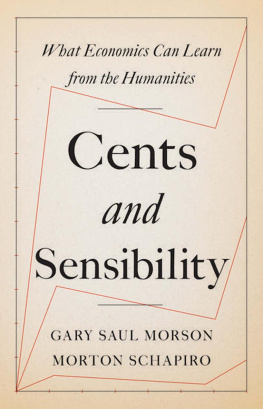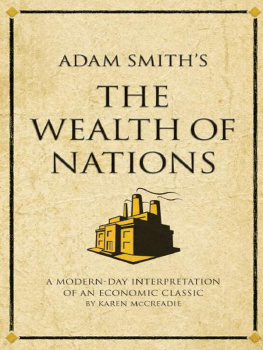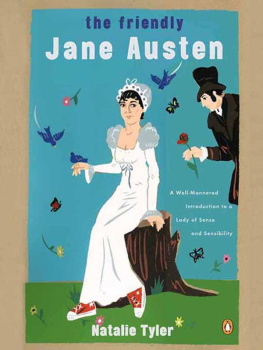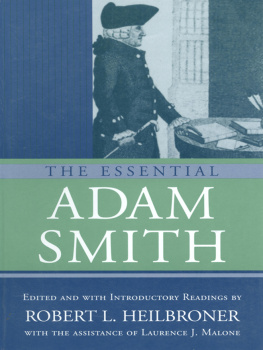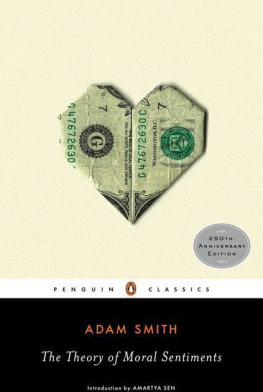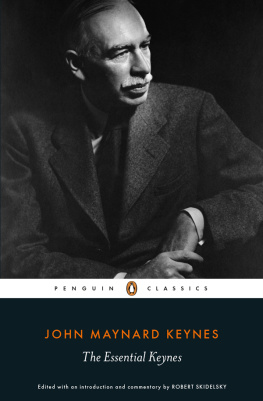Cents and Sensibility
Cents and Sensibility
What Economics Can Learn from the Humanities
Gary Saul Morson
and
Morton Schapiro
Princeton University Press
Princeton and Oxford
Copyright 2017 by Princeton University Press
Published by Princeton University Press,
41 William Street, Princeton, New Jersey 08540
In the United Kingdom:
Princeton University Press, 6 Oxford Street,
Woodstock, Oxfordshire OX20 1TR
press.princeton.edu
Jacket design by Karl Spurzem
All Rights Reserved
ISBN 978-0-691-17668-0
Library of Congress Control Number: 2017930423
British Library Cataloging-in-Publication Data is available.
This book has been composed in New Caledonia and Minion.
Printed on acid-free paper.
Printed in the United States of America
1 3 5 7 9 10 8 6 4 2
To our families and our students
We love listening, and contributing, to your stories.
Come now, and let us reason together
Isaiah, 1:18
Contents
Acknowledgments
In the early 1980s, economist Gordon Winston proudly presented his newly published book on the treatment of time in economics to the legendary economist Joan Robinson. Professor Robinson was notorious for her cantankerous nature, and Gordon waited anxiously for several weeks until Joan suddenly walked into his office, tossed the book on his desk, and declared Winston, this is the kind of book that is a lot more fun to write than to read.
Stories are a mainstay of the humanities, but not of economics. After teaching and writing together, we have become convinced that infusing humanistic approaches and sensibilities into economics would make its models more realistic, its predictions more accurate, and its policies more effective and more just.
We have many to thank for their assistance in that quest. David Figlio, Jean Franczyk, Barry Glassner, Chris Hiland, Dan Linzer, Alec Litowitz, Katie Martin, Mike McPherson, Jeremy Mingo, Adrian Randolph, Judi Remington, Thomas Pavel, Paula Peterson, Alissa Schapiro, and Mimi Schapiro provided very helpful comments on earlier drafts. Katie Porter offered her usual wisdom and Joel Mokyr provided insightful suggestions, large and small. We both had the opportunity to learn from the late, great humanist Stephen Toulmin. Geneva Danko was invaluable in organizing countless versions of the manuscript in her always unflappable and extraordinarily efficient manner. Finally, comments from Peter Dougherty and anonymous reviewers for Princeton University Press made this book immeasurably better.
Writing this was an absolute blast, and we hope that our readers can tell how much fun we had doing it. We hope, as well, that unlike Professor Robinson, you will share our enthusiasm.
Cents and Sensibility
Chapter 1

Spotting the Spoof
The Value of Telling Stories Out of (and in) School
This book creates a dialogue between two fields that rarely have anything to say to each other: economics and the humanities. We mean to show how that dialogue could be conducted and why it has a great deal to contribute.
The best dialogues take place when each interlocutor speaks from her best self, without pretending to be something she is not. In their recent book Phishing for Phools: The Economics of Manipulation and Deception, Nobel Prizewinning economists George Akerlof and Robert Shiller expand the standard definition of phishing.general: pretending to represent one discipline or school when actually acting according to the norms of another. Like phishing, spoofing is meant to deceive, and so it is always useful to spot the spoof.
Students who take an English course under the impression they will be taught literature, and wind up being given lessons in politics that a political scientist would scoff at or in sociology that would mystify a sociologist, are being spoofed. Other forms of the humanitiesor dehumanities, as we prefer to call themspoof various scientific disciplines, from computer science to evolutionary biology and neurology. The longer the spoof deceives, the more disillusioned the student will be with what she takes to be the humanities.
By the same token, when economists pretend to solve problems in ethics, culture, and social values in purely economic terms, they are spoofing other disciplines, although in this case the people most readily deceived are the economists themselves. We will examine various ways in which this happens and how, understandably enough, it earns economists a bad name among those who spot the spoof.
But many do not spot it. Gary Becker won a Nobel Prize largely for extending economics to the furthest reaches of human behavior, and the best-selling Freakonomics series popularizes this approach.work is that other fields have the questions and economics has the answers.
As with the dehumanities, these efforts are not valueless. There is, after all, an economic aspect to many activities, including those we dont usually think of in economic terms. People make choices about many things, and the rational choice model presumed by economists can help us understand how they do so, at least when they behave rationallyand even the worst curmudgeon acknowledges that people are sometimes rational! We have never seen anyone deliberately get into a longer line at a bank.
Even regarding ethics, economic models can help in one way, by indicating what is the most efficient allocation of resources. To be sure, one can question the usual economic definition of efficiencyin terms of maximizing the economic surplusand one can question the establishment of goals in purely economic terms, but regardless of which goals one chooses, it pays to choose an efficient way, one that expends the least resources, to reach them. Wasting resources is never a good thing to do, because the resources wasted could have been put to some ethical purpose. The problem is that efficiency does not exhaust ethical questions, and the economic aspect of many problems is not the most important one. By pretending to solve ethical questions, economists wind up spoofing philosophers, theologians, and other ethicists. Economic rationality is indeed part of human nature, but by no means all of it.
For the rest of human nature, we need the humanities (and the humanistic social sciences). In our view, numerous aspects of life are best understood in terms of a dialogue between economics and the humanitiesnot the spoofs, but real economics and real humanities.
Twin Crises
Economics and the humanities are both in trouble, though not for the same reason.
Economists wield a lot of power and take a lot of criticism. Sometimes it even seems as if they have two functions: to formulate policies and to take the blame when things go wrong. Should a stimulus fail to stimulate, or very high interest rates prove powerless to dampen inflation, economists are often quick to explain away the facts while newspapers are even readier to skewer them. When a real estate bubble bursts, journalists eagerly point to the economic theory that bubbles are not supposed to exist at all. For many in the public, the face of economics has turned out to be MIT economist Jonathan Gruber telling his colleagues that the health care law was deliberately written in a tortured way so that, given the stupidity of the American voter, its core provisions would be invisible. For others, it is Paul Krugman responding to his failed predictions regarding the timing of the US recovery from the last recession, the future of the eurozone, and the onset of deflation by declaring that he has seldom, if ever, been wrong.
Next page
